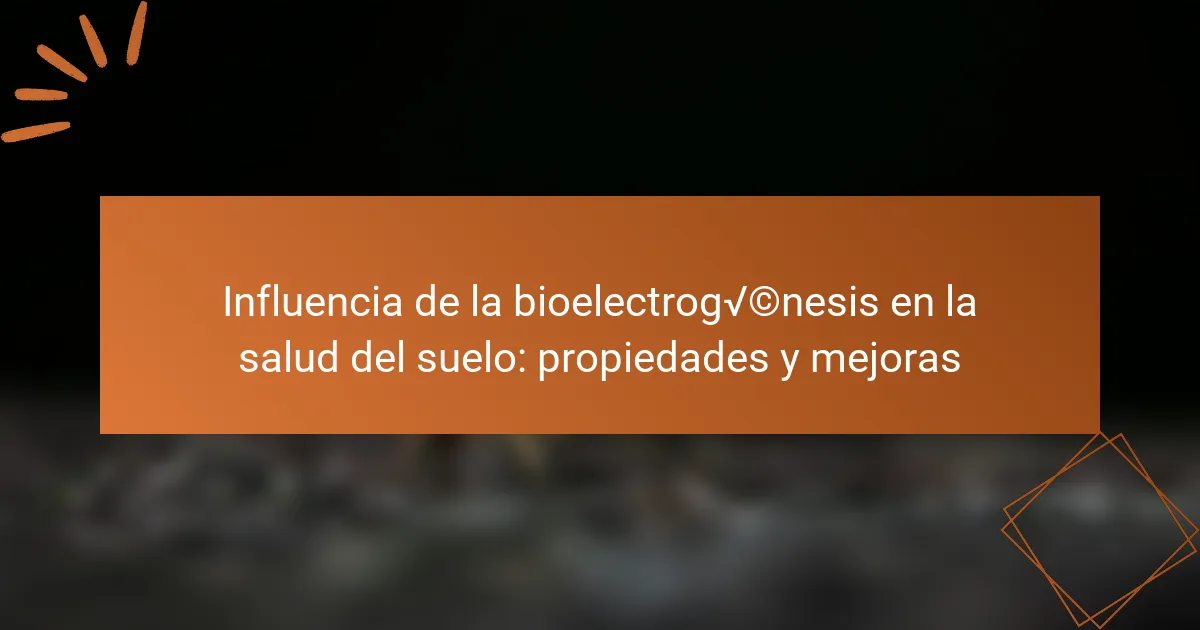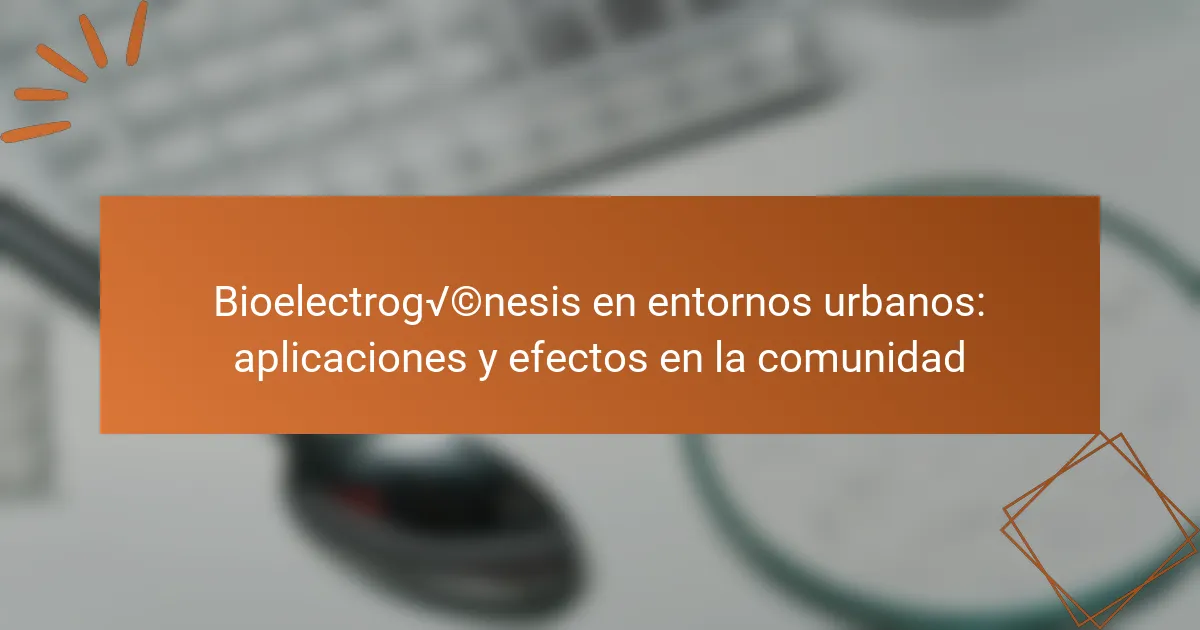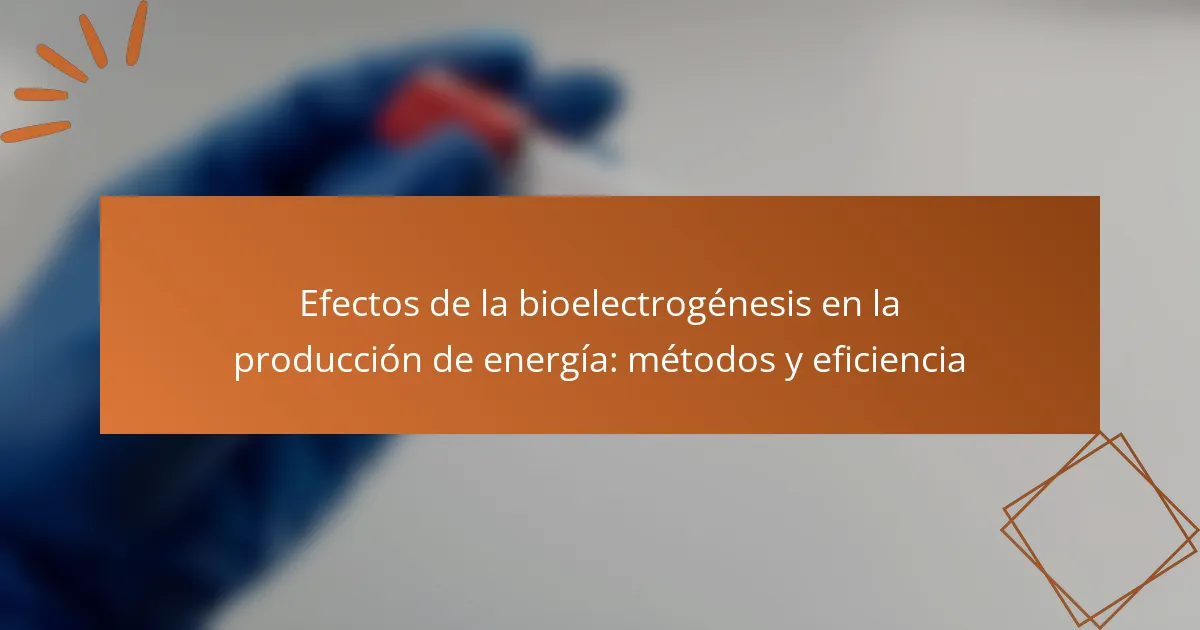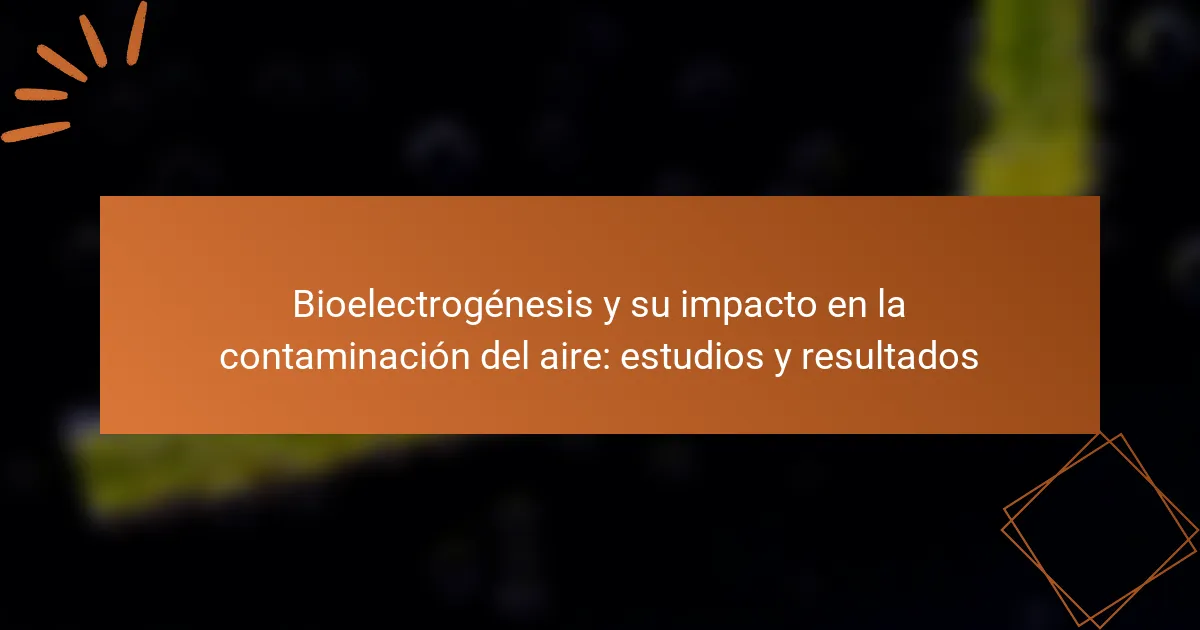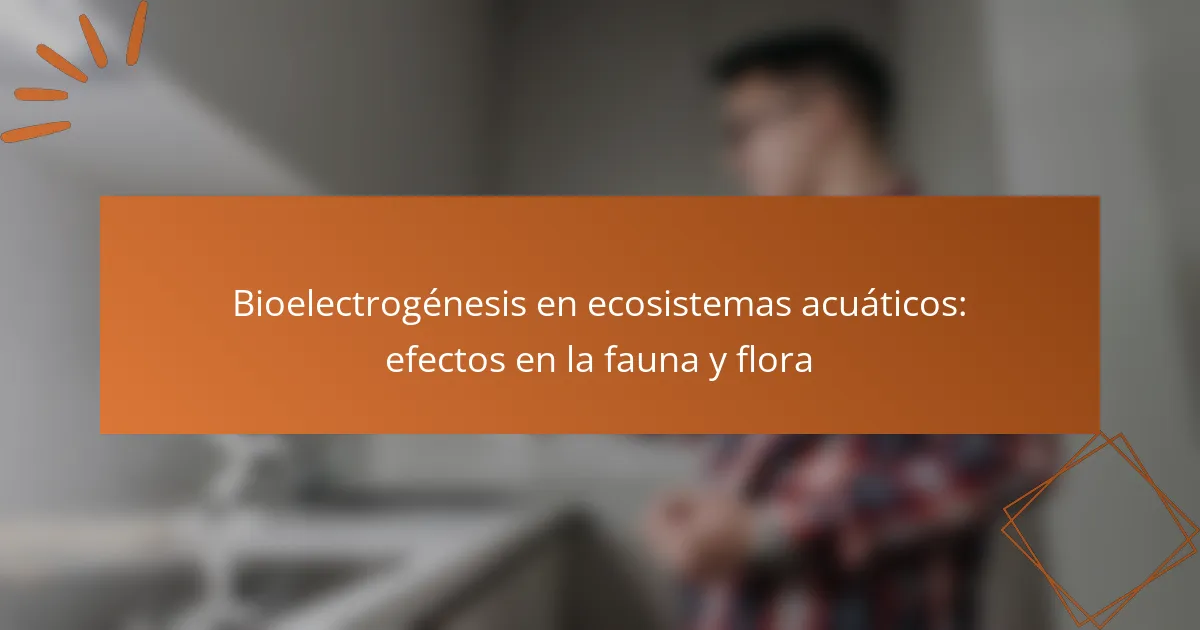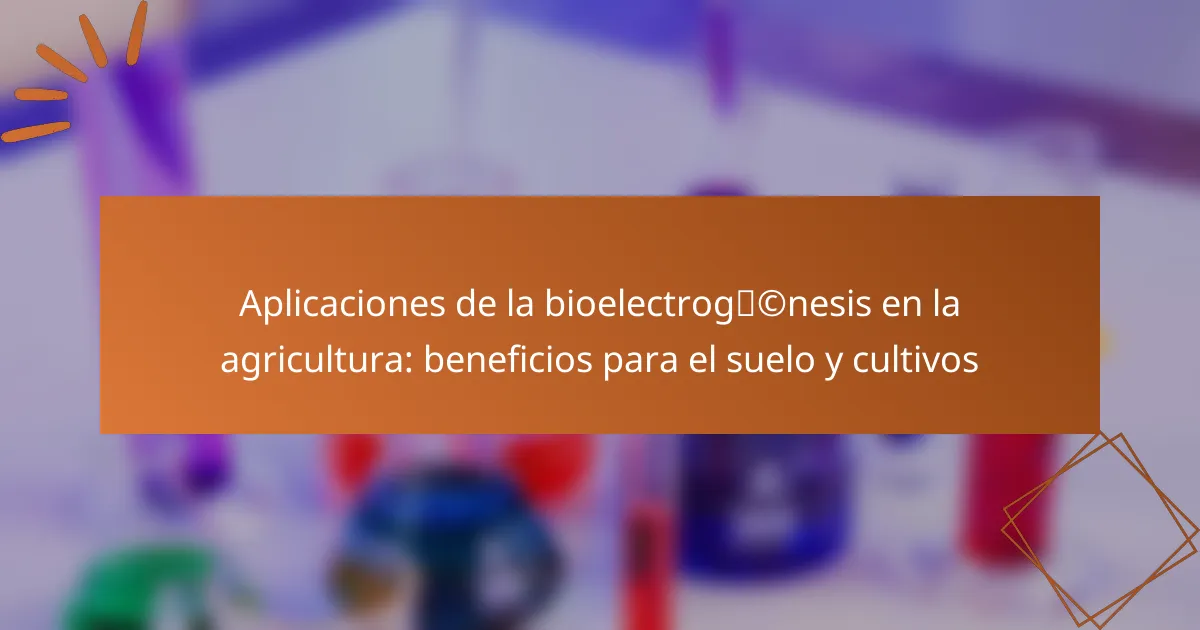
Aplicaciones de la bioelectrogénesis en la agricultura: beneficios para el suelo y cultivos
Bioelectrogénesis is a biological process that generates electricity from microorganisms in anaerobic environments. This phenomenon is utilized in agriculture to enhance soil fertility and promote crop growth by enabling bacteria in the soil to produce electrons, which improve nutrient absorption and overall soil health. Research indicates that bioelectrogénesis can lead to increased crop yields and…
